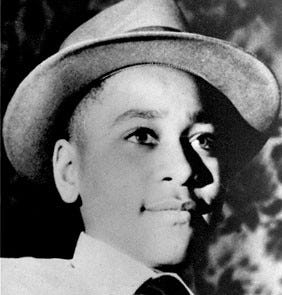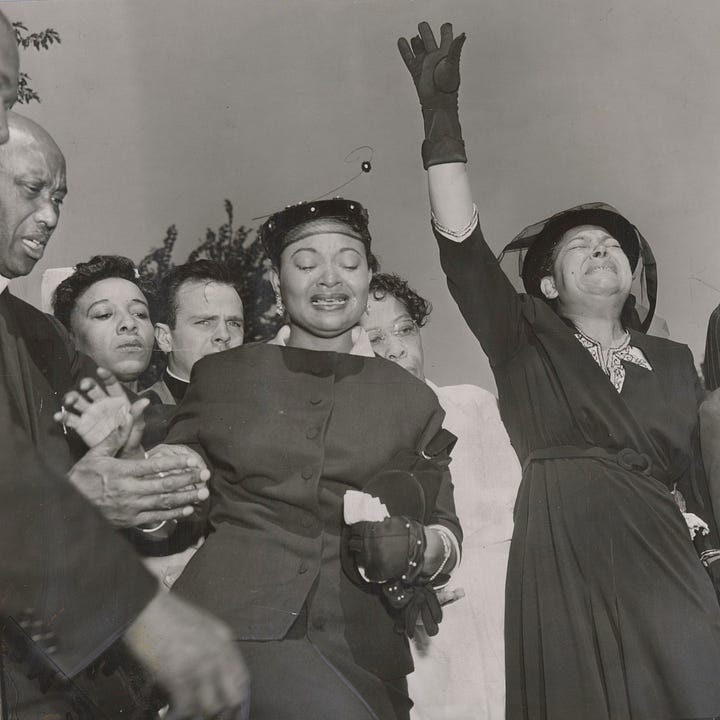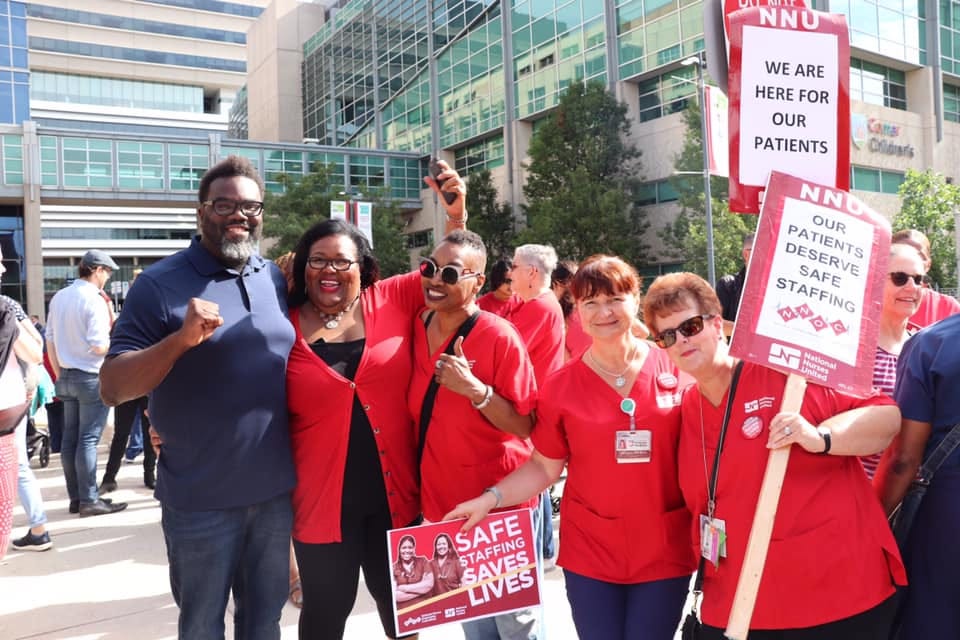Mayor-elect attends final Cook County Board meeting as commissioner, and a civil rights era remembrance
This week, the death of the woman at the center of the Emmett Till lynching calls to memory Till's impact on the civil rights movement.
Carolyn Bryant Donham, woman whose words doomed Emmett Till, dies at 88
This week, the passing of Carolyn Bryant Donham, the woman who in 1955 accused 14-year-old Emmett Till of improper advances, calls to memory the impact of Till’s death on the civil rights movement. Bryant Donham’s accusations led to Till’s brutal murder at the hands of her then-husband Roy Bryant and his half-brother J.W. Milam.


Emmett Till, left, and his mother, later known as Mamie Till-Mobley, pictured at center at her son’s funeral
An all-white, all-male jury acquitted both Bryant and Milam of Till’s murder after barely more than an hour of deliberation. A juror said afterward that they would have returned sooner had they not stopped to take a soda break.
That might have been that, had Till’s mother chosen to bury her son quietly upon his return to their native Chicago. Instead, Mamie Till, later Mamie Till-Mobley, insisted on an open casket.
“I wanted the world to see what they did to my baby,” Till-Mobley said.
As many as 100,000 people saw her son’s brutally disfigured body as it lay in Roberts Temple Church of God in Christ in Chicago.
The pictures, published by Jet Magazine and other African American publications, helped to jumpstart the civil rights movement. In December 1955, just a few months after Till’s lynching, Rosa Parks said she thought of the young Till as she steadfastly refused to move from her seat, sparking the Montgomery bus boycott.
Bryant Donham’s account of the interaction between herself and Till changed over the years. Her pre-trial statements were decidedly less incendiary than her courtroom testimony, which included accusations that Till grabbed her. She later admitted that she had perjured herself regarding that portion of her testimony.
And the degree of her involvement in Till’s murder has been shrouded in mystery for decades. It’s unclear if she was present when her husband and brother-in-law kidnapped the teen from his great-uncle Moses Wright’s home.
And while it was long assumed that she had told her husband about the incident between herself and Till, later research indicated that she had tried to hide the event from her husband, and instead a local field hand told Bryant in an attempt to gain his favor.
Repeated attempts to indict Bryant Donham have all failed, including one involving a Mississippi grand jury as recently as last year.
With the protection of double jeopardy, Roy Bryant and J.W. Milam admitted to Till’s murder in an interview with Look Magazine in 1956.
No one was ever convicted in connection with Till’s kidnapping or murder.
But the Chicago native did not die in vain. Though his murderers tried to snuff him out, he is posthumously credited with spurring on the leaders of a movement for change that resulted in the Civil Rights Act of 1964 and a sea change in public opinion on the matter of race in America.
This week, we remember Emmett Till, and those who worked and who continue to work tirelessly for the cause of civil rights in his honor.
The Round Up
Here are the stories that caught our eyes this week and what they mean for the weeks ahead.
Across Chicago, migrants overwhelming the city’s social services have been staying at police stations while awaiting placement at shelters, raising health and humanitarian concerns among police and community organizations.
People seeking asylum have been placed at more than a dozen police districts around the city, sleeping in the lobbies and waiting — often with children — for days.
This month, The Fraternal Order of Police filed a grievance over the situation, saying it raises potential health, safety and liability issues, and uses police resources for shelter that should be provided by social service agencies.
Cook County commissioners old and new lavished Brandon Johnson with praise during his last county board meeting before he’s sworn in as Chicago mayor.
Commissioners shared memories of Johnson, talked about his confidence that he would win the mayoral contest, and hoped that his election would mean greater city and county collaboration.
Search firm hired to find Chicago’s permanent police superintendent
A search firm specializing in law enforcement will lead the nationwide search for Chicago’s permanent police superintendent, with a deadline of May 7.
The Community Commission for Public Safety and Accountability, Chicago’s new civilian oversight commission, announced Wednesday it has hired Public Sector Search & Consulting.
Over the past five years, the firm has led more than 50 searches, 18 in major U.S. cities. The Chicago search will be led by two retired police chiefs.
Newsclips
How an unconventional media strategy helped power Brandon Johnson to victory
Judge slams city’s handling of Chicago police abuse lawsuit, orders deposition of former top cop
Brandon Johnson names transition committee
Chicago drops public school ratings in favor of a less punitive system for assessing schools
Cook County moving to ban sale of flavored e-cigarettes
Homewood man killed in petroleum plant blast was also wrestling coach
Chicago mayoral candidate Paul Vallas' campaign workers say they haven't been paid
CPS to take over two Urban Prep campuses after charter school’s appeal denied
Huntley High School student charged after ‘racially-motivated messages’
Jerry Springer, host of raucous Chicago-based talk show, dies at 79
Do you have ideas for future Civic Update stories or want to contribute a story yourself? Email our editor by clicking the button below!






